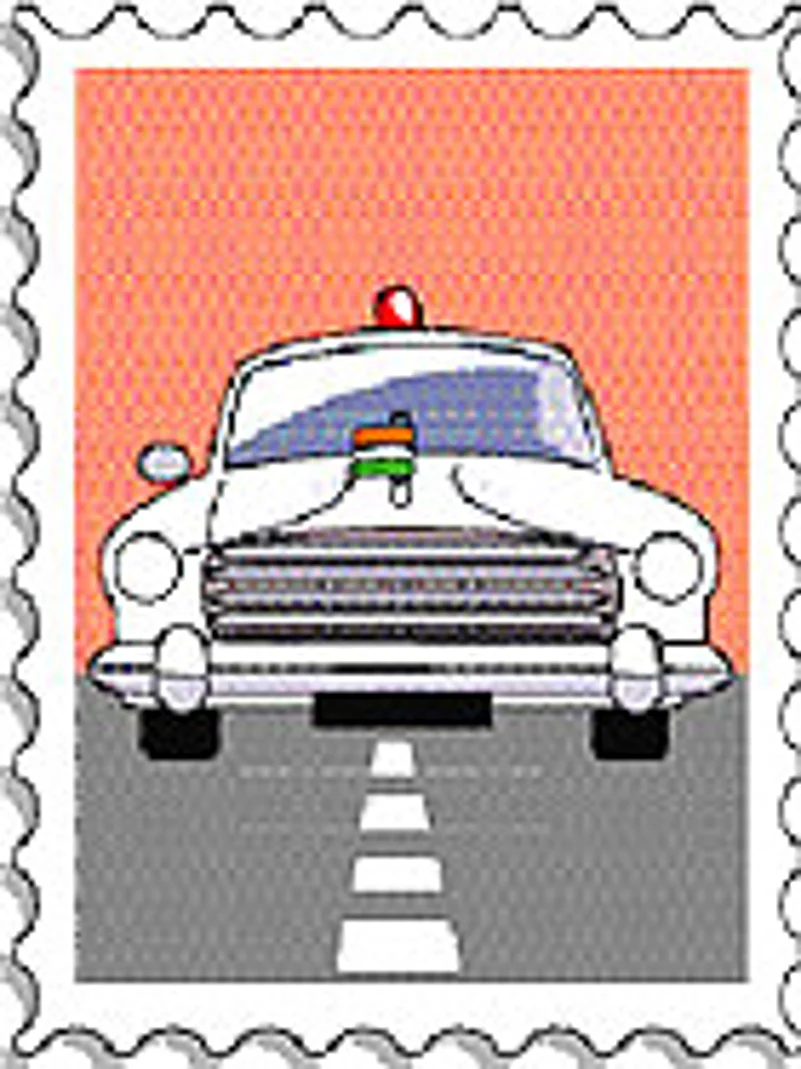
Winning Formula?
The extraordinary response to Formula One in Greater Noida has surprised me. Motor racing, I find, is a big yawn. Of course, I am not typical since I do not even know how to drive a car! But I wonder how many of the 95,000-odd flocking the course knew or understood what this tamasha, exclusively for the rich and famous and beautiful, is all about? Did any of the fans go perhaps to catch a glimpse of a live high-speed disaster with cars piled up in spectacular flames and bodies on the track? I am not a killjoy. If India’s upper-upper-class enjoy this kind of cruel thrill, one should not deny them the pleasure.
What interested me more than the fancy souped-up cars were the dames—domestic and foreign. A sight for the gods! Clearly, besides the hardware, the sport carries a lot of soft power—which may be its real attraction.
The print and electronic media’s wall-to-wall coverage of the event seemed a bit over-the-top. No one pointed out the irony of the world’s most expensive sport being showcased in India’s poorest state, where hunger, disease and murder flourish. Nevertheless, full marks to chief minister Mayawati and the Jaypee Group for pulling off a gigantic engineering and managerial project. Is this another feather in the cap of India Shining?
Savant Sullied
I have long argued for the media to be made accountable and not be treated as a holy cow. Whenever necessary, it should be punished. There is much loose talk now of doing precisely that through government intervention. Happily, the matter is still at an early stage. Meanwhile, our netas and even some members of civil society want to see the fourth estate come under the umbrella of the proposed Lokpal.
Having placed my cards on the table, let me refer to a dispute currently in the court between a leading TV channel and a distinguished former Supreme Court judge. Damages to the extent of Rs 100 crore have been sought. The channel’s mischief? It showed the wrong picture in a provident fund scam report for 15 seconds. Instead of the erring judge allegedly implicated in the scam, the channel showed a picture of Justice (rtd) P.B. Sawant, who, besides being on the list of distinguished judges who have graced the highest court, has also been an exemplary Press Council chairman. In the report, only Justice Sawant’s picture was seen; he was not mentioned by name. The channel apologised for the inadvertent error.
I’ve known Justice Sawant for many years. He is an extremely fair and reasonable man. This is a matter which should be disposed of over a cup of tea, and an apology to Justice Sawant’s satisfaction should be agreed upon. It does not deserve to be in the courts.
Forgetting to Remember
It has been a long time since I read a work of fiction. The last novel I finished was Rushdie’s Shalimar the Clown. However, I devoured Julian Barnes’s Booker Prize novella, The Sense of an Ending. In fact, I read it twice. On my bedside is a collection of articles Barnes wrote for the New Yorker magazine a decade ago. From his photograph and his prose, Mr Barnes comes across as a calm man who composes calm sentences. There is no hysterical dialogue, no complicated plotting, no linguistic flamboyance. Actually nothing of great consequence happens.
The theme is the tricks memory plays when a person near the end of his life tries to remember his/her defining and mundane moments. Frequently, memory lies, is an unreliable guide. Sample this:
“When you start forgetting things—I don’t mean Alzheimer’s, just the predictable consequence of ageing—there are different ways to react. You can sit there and try to force your memory into giving up the name of that acquaintance, flower, train station, astronaut.... Or you admit failure and take practical steps with reference books and the internet. Or you can just let it go—forget about remembering—and then sometimes you find that the mislaid fact surfaces an hour or a day later, often in those long waking nights that age imposes. Well, we all learn this, those of us who forget things.
“But we also learn something else: that the brain does not like being typecast. Just when you think everything is a matter of decrease, of subtraction and division, your brain, your memory, may surprise you. As if it’s saying: Don’t imagine you can rely on some comforting process of gradual decline—life’s much more complicated than that. And so the brain will throw you scraps from time to time, even disengage those familiar memory-loops.”
A Gentle Reminder
I promise this is the last time I will be plugging my book, Lucknow Boy. D-day draws near: It is November 9. The response from the trade has been quite tepid till now, so please rush your order to Penguin. Since I don’t plan to write another book, I won’t be troubling you again.




















